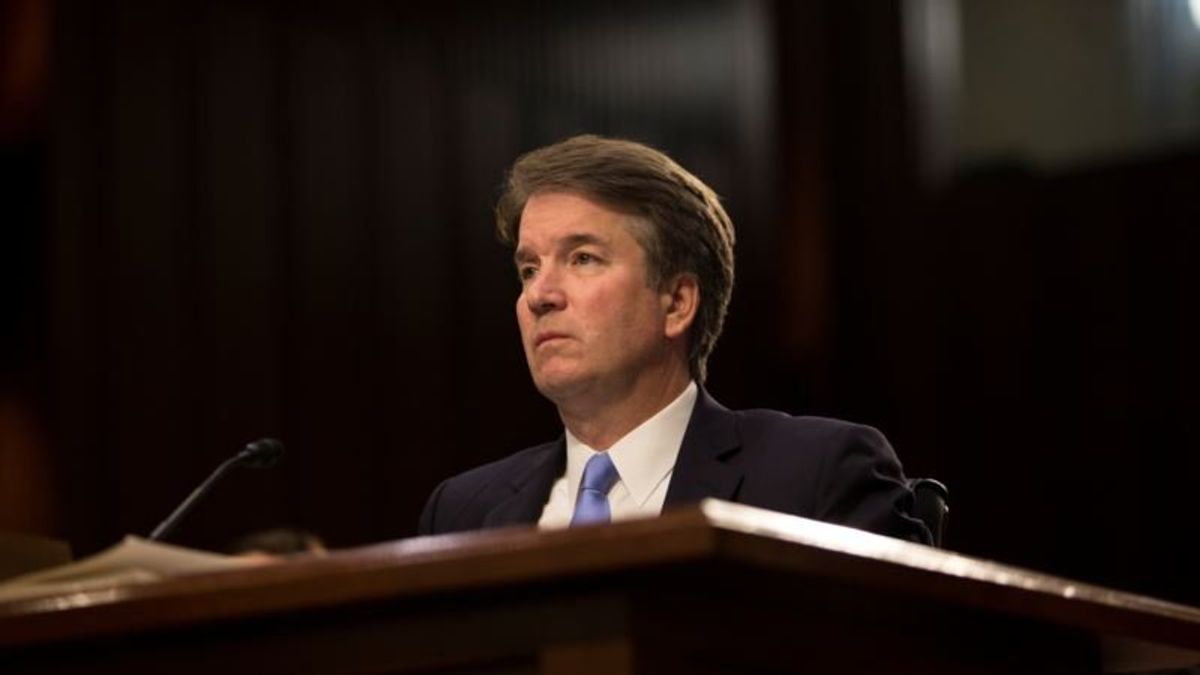
US Top Court Nominee Kavanaugh Facing More Questions
US Top Court Nominee Kavanaugh Facing More Questions

WASHINGTON —
U.S. Supreme Court nominee Brett Kavanaugh is facing another round of questioning Thursday, a day after declaring his independence as a judge, but refusing to be pinned down on questions related to the investigation of President Donald Trump and his 2016 campaign's links to Russia.
"I'm an independent judge," the 53-year-old Kavanaugh told the Senate Judiciary Committee. "I owe my loyalty to the Constitution, and the Constitution establishes me as an independent judge, bound to follow the law as written."
But Kavanaugh declined to take a position on whether a president can be subpoenaed and required to answer questions, whether a president can pardon himself if charged with wrongdoing, and whether he still believes, as he wrote two decades ago, that a president can fire a prosecutor who is investigating him.
The questions related to the ongoing investigation being conducted by special counsel Robert Mueller into whether Trump's campaign colluded with Russia to help him win and whether Trump, as president, obstructed justice by trying to thwart the probe. Mueller has not subpoenaed Trump, but has been unable to reach an agreement for Trump to testify about his actions and his campaign.

‘No one is above the law’
Trump, who nominated Kavanaugh in July, says he is pleased with the way the hearings are going, saying Kavanaugh had given "some incredible answers to very complex questions." The U.S. leader called Kavanaugh "an outstanding judge" who was "born for the position."
Kavanaugh asserted "no one is above the law in our constitutional system" and that "no matter your station in life, no matter your position in government, it's all equal justice under law." But he declined to say whether a sitting president, like all other citizens, must respond to a subpoena to provide testimony.
"I can't give you an answer on that hypothetical question," the nominee said.
In the 1990s, as an attorney, Kavanaugh took part in an investigation of then-president Bill Clinton that compelled Clinton to testify. Years later, having served in the George W. Bush administration, Kavanaugh wrote that presidents should be shielded from legal proceedings while in office.
Nominated to fill the seat of retiring Supreme Court Justice Anthony Kennedy, Kavanaugh told lawmakers he has not hesitated to make unpopular rulings in the past. He cited his opinion in a case releasing Osama bin Laden's former chauffeur, Salim Ahmed Hamdan, from detention at the U.S. military facility at Guantanamo Bay, Cuba.
"You'll never have a nominee who's ruled for a more unpopular defendant," Kavanaugh said. He said judges should not make decisions based on who people are, but "whether they have the law on their side. My personal beliefs are not relevant."

‘I don't live in a bubble’
While Republican senators posed many questions on Kavanaugh's overall judicial philosophy, Democrats zeroed in on controversial issues, including gun ownership and abortion rights in the U.S.
The committee's top Democrat, Dianne Feinstein, sought assurances that the nominee views as settled law the Supreme Court's landmark 1973 decision, Roe v. Wade, establishing abortion rights nationwide.
"It's an important precedent of the Supreme Court that's been reaffirmed many times," Kavanaugh said. "I understand the importance of the issue. I don't live in a bubble, I live in the real world."
He described a 1992 decision reaffirming the original ruling as "precedent upon precedent." He said Americans "need to know the law is predictable. Precedent is the foundation of our system."
Numerous women's groups are opposing Kavanaugh's nomination, fearing he would vote with other conservative justices to restrict or eliminate abortion rights.
Protesters periodically interrupted the hearing. One repeatedly shouted, "Sham president, sham justice."
If approved by the Republican-led committee, Kavanaugh's nomination would go to the full Senate, where Republicans will hold a slim 51-49 majority. No Republicans have said they plan to vote against Kavanaugh. Dozens of Democrats have announced their opposition.
 Georgette Mosbacher Begins Term as US Ambassador in PolandNext PostTwitter Bans Jones, ‘Infowars,’ Citing Abuse
Georgette Mosbacher Begins Term as US Ambassador in PolandNext PostTwitter Bans Jones, ‘Infowars,’ Citing Abuse





